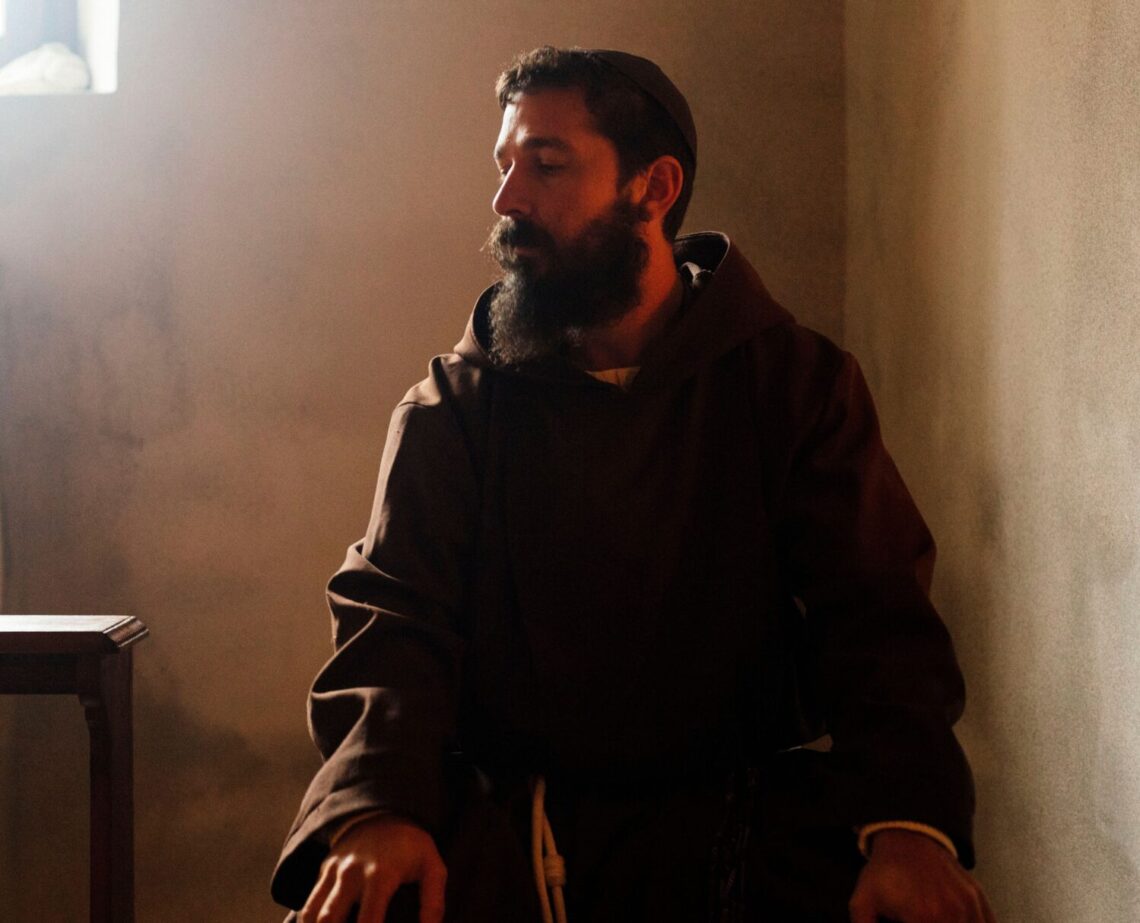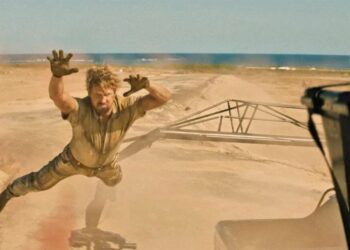Padre Pio was, by all accounts, a remarkable man. Born in 1887, he lived to be 81, serving for many decades as a Franciscan friar before being canonized by the Catholic Church in 2002. He was an authentic mystic who claimed to have had divine visions of angels and demons, was marked by stigmata on his hands and feet, and even purportedly got into fistfights with the Devil himself. He should be the subject of a remarkable movie, too, but Abel Ferrara’s biopic falls short, barely illuminating the soul of a man who struggled mightily with his Christian calling.
Played by Shia LaBeouf, who refused to employ an Italian accent, Pio is called to the monastery at San Giovanni Rotondo in the Italian countryside to serve a community whose men have recently returned from WWI. The townsfolk are sharply divided between the haves and have-nots, and the impoverished villagers are kept under the thumb of the wealthy landowners. Certain villagers spreading Marxist ideas are thwarted by the proto-fascist ruling class leading up to Italy’s first free election.
Ferrara, a bona fide auteur who averages about a movie a year, has dabbled in Catholic themes and imagery his whole life, most intensely in his enduring cult classic, Bad Lieutenant. But with Padre Pio he thrusts these obsessions into the foreground. Demonstrably fascinated with the nature of religious faith, Ferrara reveals a soul racked with doubt about how spiritual convictions play out in a world dominated by evil. But the screenplay—co-written by Ferrara and Mauricio Bracci—is unfocused and narratively adrift. The film is at his best when the director pays explicit homage to his cinematic forebears, particularly fellow countryman Pier Paolo Pasolini in a moment when Blind Willie Johnson’s “Dark Was the Night, Cold Was the Ground” breaks over the soundtrack, ushering in memories of The Gospel According to St. Matthew.
LaBeouf’s performance as the young priest tortured by visions both infernal and divine…
Read the full article here







